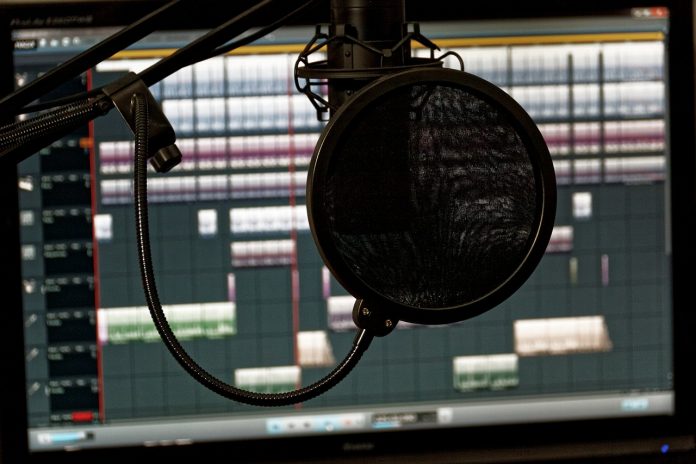

Almost every one of us loves to listen to music, be it Jazz, Country, Indie or EDM. But, the music we listen to as the final product, is the result of a long process which involves various people like artists, directors, technicians, etc.
Nowadays, the music production industry itself is worth billions and is one of the most exciting and fascinating industries.

We may say that music production is a process where various people are collectively involved in producing musical tracks and songs which includes recordings, writing, editing, etc. Moreover, it also involves certain promises, commitments, and financial transactions. Thus, it becomes important that these commitments and transactions are regulated by law, and thus, there is a vast scope of legal agreements in this industry.
So, let us discuss various legal agreements that are involved in this industry per se .
Just like every creative production, the Making of Music also involves various different stages. To understand the importance of legal agreements in music production in a better way, it is necessary to get an overview of these stages.
These stages are:
The very first step in creating music is songwriting. A greatly crafted song must contain the following elements:
This stage mainly involves two sub-stages, i.e. Lyrics writing and Music Composition. This stage involves various players, like lyricist, music director, instrument artists, and others. This stage ends up creating a composition.
Arranging instruments and voices in such a way that it pleases the listener is another important stage of music production. It often happens that a piece of music has a good melody and beat, but it sounds boring just because the music gets too repetitive.
To avoid such a situation, this stage is very important. It involves the question like when to include a particular tune or beat, what instruments should be used in which part of the music etc.
This stage involves the music director, vocalists and instrument players.
After being done with arranging all the parts, the next stage of music production is sound design and sound production. This stage includes adding multiple effects to the arranged sample, adding various layers of music, editing synth presets and more.
In this stage, various techniques are used, like:
This stage involves players like the sound designer and technician.

This stage of music production involves combining the various layers of music and audio tracks to make the final audio. Mixing involves the following things:
This is the stage where the experience and knowledge of the music technicians come in handy.

This is the final stage in the process of music production. It’s the stage of processing the audio mix and then preparing it for further distribution. The purpose of mastering is to balance the stereo mix, make all the elements sound cohesive, and to reach commercial loudness.
In this stage, the finalized tracks and albums are sent to the market through a distributor who distributes it to various shops and platforms. A distribution company that specializes in Music Distribution signs a deal with the producer/artist which gives them the right to sell the music to the shops. In layman language, the distribution company just acts as the middleman between the producer and the store.
During the production of music through above mentioned various stages, a whole lot of agreements and contracts are signed between the production house and various other players.
From the very initial stage of lyrics writing to the final stage of distribution, the process of Music Production deals with a lot of Intellectual Property rights and thereto related legal drafting.
There can be negotiations between the music producers and different people involved in the process by means of contract or agreement varying from the IPR to the Competition law.
The whole process of Music Production involves a lot of monetary and business transactions. Failing to document these transactions in the form of written contracts and agreements may lead to confusion, ambiguity and hefty losses.
Earlier, in the music production industry, due to negligence and unawareness regarding written agreements, people and companies were not able to exercise their rights and ignored their duties towards others. But now, with the emergence of media and entertainment laws, this industry takes its contractual and Intellectual Property Rights seriously.
Also, the contracts made in the form of legal agreements provide the parties with the option of approaching the courts and tribunals for dispute resolution. This helps in protecting IP rights and enforcing the contracts.
Now let us discuss the different types of agreements that are most commonly used during the various stages of Music Production.
Various types of agreements are used at different stages of music production. One can not make a comprehensive list of such agreements which are to be used during the entire process but there are some agreements which are most common. These are:
This agreement is one of the most basic and initial agreements in the music production industry. This is more of a general form which guarantees that you accidentally don’t abdicate your rights to the other contributors in the making of music. This form may also include a waiver in case if the artist/Contributor is signed to a production company or record label.
Now, the question that comes is, why is it important?
This agreement is very important because, in the absence of any such Work-Made-For-Hire Agreement, all the contributors in the making of the music may claim joint ownership of the Intellectual Property.
Illustration
The song “Addicted” was sung by Enrique Iglesias and was produced by Interscope Records. The other artists involved were Paul Barry and Mark Taylor. So, if the company Interscope Records doesn’t sign a contract with all the artists, then, Enrique Iglesias, as well as Paul Barry and Mark Taylor can claim ownership of the track.
Another very basic, yet very crucial agreement between the producer and the artists is the Music Collaboration Agreement. This agreement is the most common agreement in the music industry and is signed between the music producer and the artists.
This agreement establishes that the producer is collaborating with some particular artists for producing an album or a single track.
This agreement basically deals with the agreed percentage share between the producer and the artists. After rounds of negotiations, this agreement is signed with consent and assent of both parties.
Illustration
All the songs of ‘Kabir Singh’ Album were composed by Sachet Tandon and Mithoon. The album was produced by T-Series productions. Now, when the artists were signed initially by the production house, they must have negotiated upon the percentage share, and later, the profits must have been distributed according to the agreement.
This agreement is equally important as the music collaboration agreement. These agreements are used where a side/auxiliary artist is engaged to contribute to the music production process. In the case of lyrics writer, this agreement may also allow keeping the part which he has written, with him.
Whenever the producer is going to register the work with the competent authority of intellectual property, having this agreement in hand helps greatly.
This agreement basically, is a form that shows the distribution of shares from profits gained by selling the composition. Having this agreement with the other contributors helps to a great extent as in the absence of such agreement, you may not be able to get the royalties and profits from the sale of music.
Illustration
Suppose that a track is being produced by a Record label XYZ. The contributing artists are Mr AB, Mr CD, Mrs GH, and Mr ER. So, to avoid confusion and dispute at the time of profit-sharing, the percentage of shares are decided already:
So, the agreement drafted may look like:
*This split sheet agreement may not be modified or amended, except by a document signed by all the co-writer named below.
| Effective Date | 23.04.2020 |
| Recording Artist | Mr RT & Mrs JK |
| Album Title | Sunshine on the Mountain |
| Record Label(s) | Paramount Music |
| Recording Location | Hollywood, United States |
Co-Writers
Ownership Share in Percentage